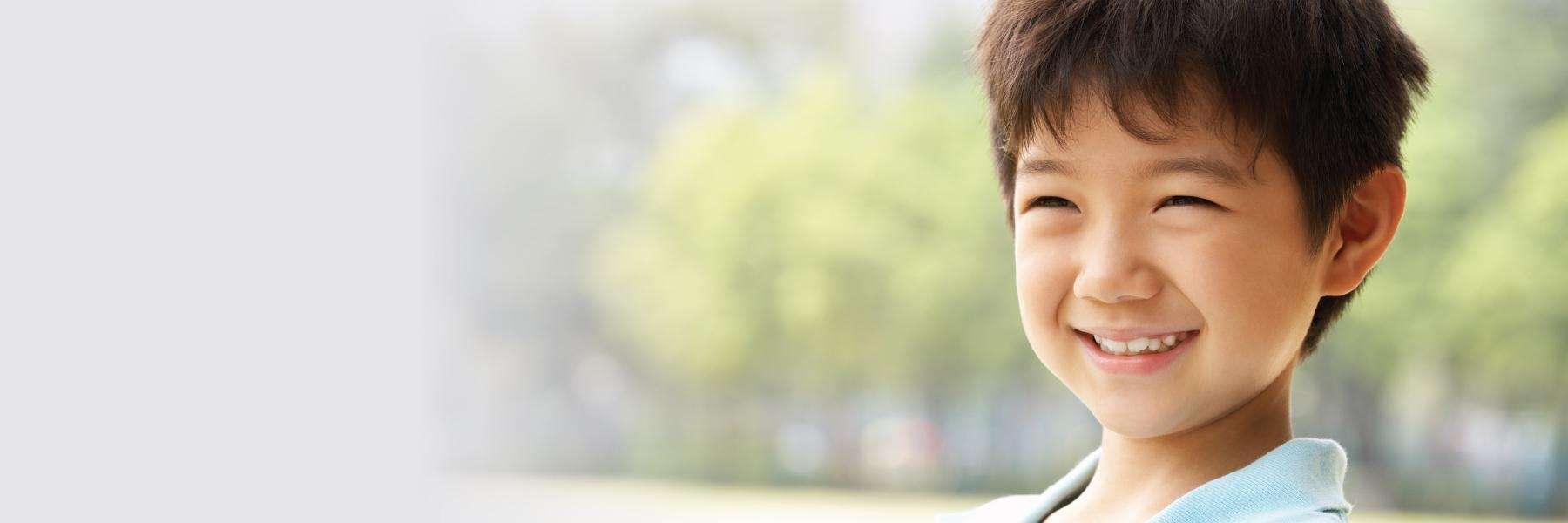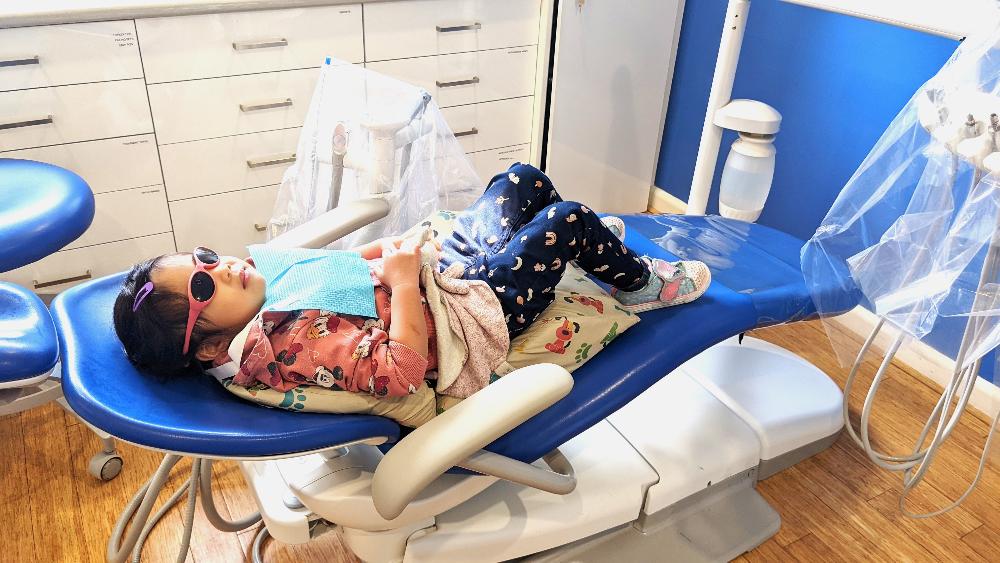
Behaviour Management
Dr Evelyn Yeung believes that an  individual approach is required when managing her patients, as not all children are alike. Particularly when it comes to attending the dentist for treatment, it is important to recognize that a child is not a ‘little adult’ who will automatically understand and accept the processes involved. As such, time and care will be taken to provide an approach and environment to create the most favorable process each child. On occasion, this may involve multiple frequent appointments to aid with a familiarization approach. Alternatively, there may be involvement of other health-care professionals to aid with managing phobias and developing strategies to enable children to have a healthy approach towards future dental care.
individual approach is required when managing her patients, as not all children are alike. Particularly when it comes to attending the dentist for treatment, it is important to recognize that a child is not a ‘little adult’ who will automatically understand and accept the processes involved. As such, time and care will be taken to provide an approach and environment to create the most favorable process each child. On occasion, this may involve multiple frequent appointments to aid with a familiarization approach. Alternatively, there may be involvement of other health-care professionals to aid with managing phobias and developing strategies to enable children to have a healthy approach towards future dental care.
If my child needs dental treatment what is involved and what would be the best way for them to have safe treatment?
It is important to understand that children are not little adults. They require additional care and assistance to aid them as they have their dental procedures. At Happy Smiles For Kids we aim to provide favourable experiences so that children had a positive outlook towards receiving dental care. Thus, treatment is not provided at the initial consultation to allow for planning the best approach for each child.
Our specialists work to ensure that your child's appropriate dental care is undertaken with a child-centered approach. The aim is to provide positive experience, without treatment becoming compromised or for safety concerns to arise.
For some children, this may involve undergoing dental treatment under nitrous oxide sedation (also known as relative analgesia or 'happy gas') or general anaesthesia.
Nitrous oxide sedation
Why has it been recommended for my child’s dental treatment?
Nitrous oxide gas is given during dental treatment to aid with alleviating anxiety and some pain during procedure. It is recognised as a safe and effective technique to aid behaviour management. However, it does not replace the need for the administration of local analgesia. It is effective with aiding children to cope with lengthy dental procedures, and can reduce gagging in children with sensitive gag reflexes.
Use of this sedation has been recommended to improve the quality of your child’s dental care and aid with creating a more favourable experience.
How is it given?
Nitrous oxide gas is administered through placement of a mask over your child’s nose. With consistent nasal inhalation, the nitrous oxide gas will have an effect. While it is being used, will be wearing a pulse oximeter to monitor your child’s pulse and blood oxygen levels.
Nitrous oxide gas has a rapid effect and is also excreted quickly from the lungs. Following administration of 100% oxygen upon completion of treatment, there will be recovery from the nitrous oxide sedation within minutes.
General anaesthesia
For treatment under general anaesthesia, there is collaboration with several Day Hospital facilities for the provision of day procedures. Further information is discussed in detail at the time of consultation as required.
OUR TEAM

Dr Evelyn Yeung
Hailing from South Australia, Evelyn attended the University of Adelaide where she received both her bachelor degree in dental surgery and postgraduate training in the Doctorate of Clinical Dentistry (Paediatric Dentistry). She has worked in private and public practice gaining a wide breadth of experience and knowledge in Melbourne, and metropolitan and rural South Australia.
During her specialist paediatric dental training, Evelyn gained experience and developed interests in children with Autism Spectrum Disorders, children with special needs, behaviour management, laser soft tissue procedures, dental anomalies and management of dental trauma.
Evelyn was ...
